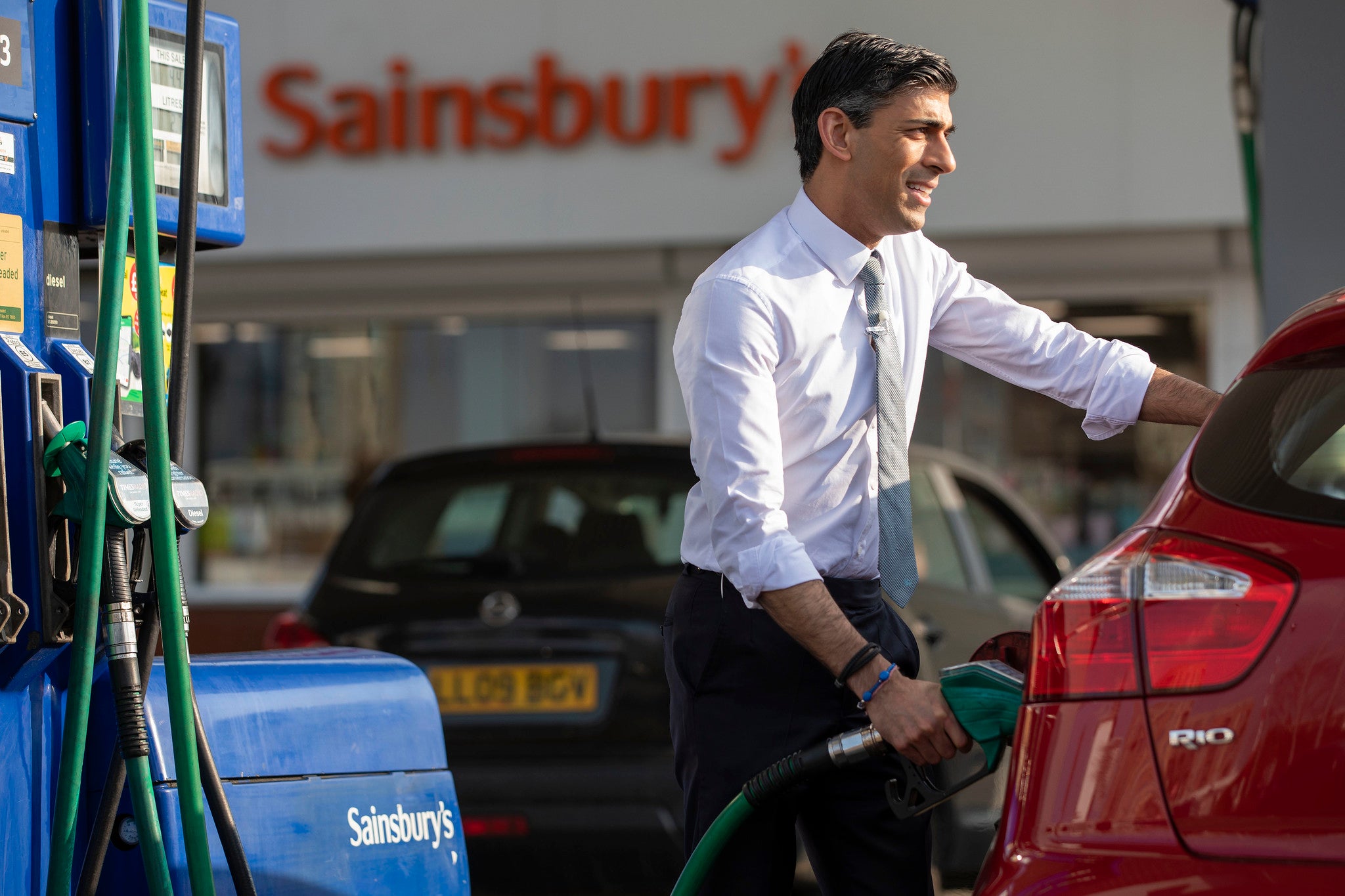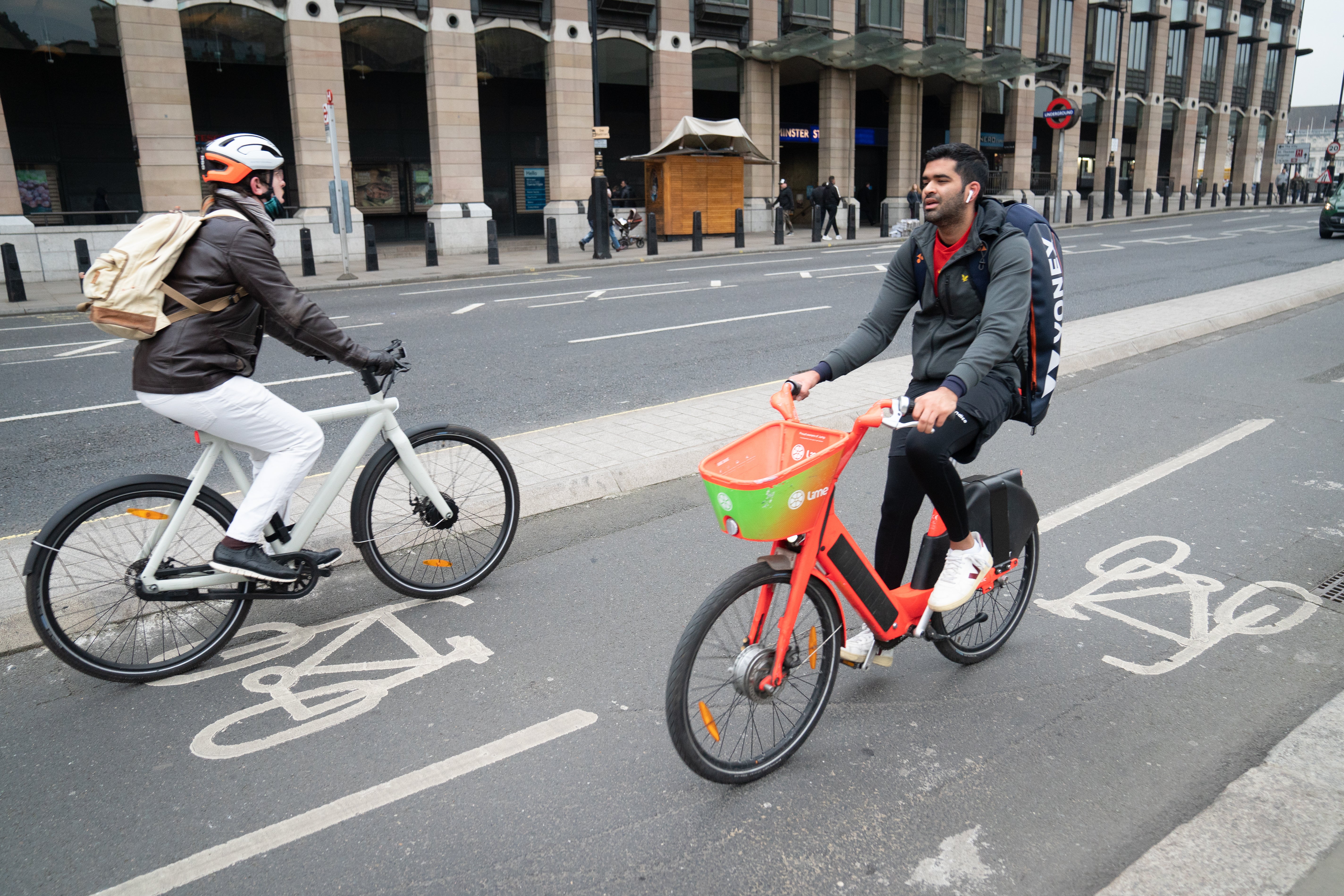What is fuel duty and how will the cut affect prices?
Campaigners say announcement sends ‘detrimental’ message that driving is preferable to using public transport
Your support helps us to tell the story
From reproductive rights to climate change to Big Tech, The Independent is on the ground when the story is developing. Whether it's investigating the financials of Elon Musk's pro-Trump PAC or producing our latest documentary, 'The A Word', which shines a light on the American women fighting for reproductive rights, we know how important it is to parse out the facts from the messaging.
At such a critical moment in US history, we need reporters on the ground. Your donation allows us to keep sending journalists to speak to both sides of the story.
The Independent is trusted by Americans across the entire political spectrum. And unlike many other quality news outlets, we choose not to lock Americans out of our reporting and analysis with paywalls. We believe quality journalism should be available to everyone, paid for by those who can afford it.
Your support makes all the difference.Rishi Sunak announced in his spring statement that fuel duty will be cut by 5p per litre for the next 12 months.
The change, which took effect from 6pm on Wednesday, was brought about by the increasing cost of living, including a rise in the wholesale cost for fuel, the chancellor said.
However the move appears to undermine the government's own aims of reducing car use, and charities have warned that the reduction will "largely benefit wealthier households who tend to have bigger vehicles and drive more".
Campaigners said the announcement sends a “detrimental” message that driving is preferable to using public transport and warned that rail and bus fares continued to rise while polluting petrol and diesel-powered vehicles were seen to be subsidised.
What is fuel duty?
Fuel duties, or taxes, apply to purchases of petrol, diesel and a variety of other fuels used both for vehicles and domestic heating.
The level of fuel duty depends on the type of fuel used, with a litre of petrol, diesel, biodiesel and bioethanol attracting a fuel duty of 52.95p (57.95p before the chancellor’s spring statement).
Liquefied petroleum gas (LPG) has a fuel duty of 28.88p per kg, natural gas used as fuel in vehicles, for example biogas, has a duty of 22.57p per kg and ‘fuel oil’ burned in a furnace or used for heating is taxed at 9.78p per litre.
They represent a significant source of revenue for the government, raising £28bn in 2019-20, according to the Office for Budget Responsibility – equivalent to 3.3 per cent of all receipts.

Last year, Mr Sunak used the autumn budget to announce fuel duty would be frozen for the twelfth time in a row, saving the average car driver £1,900, compared with the “duty escalator” that was in place before 2010.
Why is the government reducing fuel duty?
The government insists the measure – described as the “largest cash-terms cut across all fuel duty rates at once, ever” – is intended to support households and businesses at a time of very high oil prices.
On Wednesday, crude oil rose 4.1 per cent to $113.75 (£86.15) per barrel, while a barrel of Brent crude, the international standard, rose 4.7 per cent to $120.94 (£91.60). Prices are up more than 50 per cent in 2022 so far.
However it will be very difficult politically for ministers to reinstate the previous fuel duty level, let alone increase it as many argue needs to happen to meet our climate, clean air and active travel objectives, in a year’s time.
What impact will the cut in fuel duty have on prices?
Cutting 5p from a litre of petrol does not necessarily mean petrol will be 5p cheaper at the pump.
Mr Sunak and the business secretary, Kwasi Kwarteng, have written to major retailers, trade bodies and the supply chain to lower their prices accordingly.
“The public will rightly expect to see this historic cut reflected quickly in the prices shown on the forecourt,” the letter stated, adding that the government wanted those “in the supply chain to pass this cut through to consumers as soon as possible”.
AA president Edmund King said the “benefit will be lost unless retailers pass it on”. If the reduction is passed on in full, it is likely to result in a saving of approximately £3 for a 55-litre petrol car.
With the war in Ukraine showing no signs of ending and the cost of a barrel of oil having risen dramatically in the last month, filling up a tank will – many say rightly – continue to be costly.
What has the reaction been?
The Campaign for Better Transport has warned that the fuel duty cut will do nothing to reduce our dependence on oil or help people make the switch to more sustainable forms of transport.

Paul Tuohy, Campaign for Better Transport’s chief executive, said: “The financial impact of today’s fuel duty cut on people’s pockets will in fact be minimal, whereas the message it sends – that driving is preferable to using public transport - is much more detrimental. Whilst drivers are given help with the cost-of-living crisis, people that rely on public transport get no help with rising fares and face ongoing cuts to services.”
Since 2012, rail fares have risen at a higher rate than fuel costs, yet rail passengers faced a 3.8 per cent increase in fares this month (4.8 per cent in London).
Bus fares have risen at a far higher rate, 54 per cent in the last decade. If the cost of fuel for car drivers had risen at the same rate as bus fares, it would cost well over 200p a litre by now instead of an average of 167p, the organisation said.
Mr Tuohy added: "The Department for Transport has been busy supporting bus and rail travel, but the Chancellor's announcement today has pulled the rug out from underneath public transport.”
Friends of the Earth's head of policy Mike Childs said: "The priority should have been to follow the lead of New Zealand by reducing the price of public transport and providing a more affordable alternative to driving."
Andy Bagnall, director general of industry body the Rail Delivery Group, said the government "cannot make rail less competitive" than other forms of transport in the long-term if it is "serious" about meeting zero-emissions targets.

"We need an even approach to taxes, fares and charges across all modes of transport, so the cost of each reflects its environmental impact," he added.
Cycling UK's head of campaigns Duncan Dollimore compared the cut in fuel duty to "a sticking plaster".
He said: "A progressive spring statement would have invested in cycling, walking and public transport for the future."
The Institute for Public Policy Research, a think tank, said the cut in fuel duties will have little impact on the overall cost of living and will help the better off more in cash terms than the poorest.
Dr George Dibb, head of the IPPR Centre for Economic Justice, said: “The Chancellor’s announcements are shockingly inadequate and will not help those who will need it most. We’re going into the biggest incomes squeeze in a generation and once again the chancellor hasn’t offered the support that many households need.
“Changes to National Insurance thresholds and cuts to fuel duty will help middle income families more than those in the lowest 20 per cent, and it will help those who are already richest even more.”





Join our commenting forum
Join thought-provoking conversations, follow other Independent readers and see their replies
Comments